Related Research Articles

Emma Goldman was a Lithuanian-born anarchist revolutionary, political activist, and writer. She played a pivotal role in the development of anarchist political philosophy in North America and Europe in the first half of the 20th century.

Sinesio Baudillo García Fernández, commonly known by his pseudonym Diego Abad de Santillán, was a Spanish Argentine anarcho-syndicalist economist. Born in León, his family moved to Argentina while he was young. He returned to Spain for his higher education and became involved in the Spanish anarchist movement. After his studies, he went back to Argentina and became involved with the Argentine Regional Workers' Federation (FORA), co-founding the International Workers' Association (IWA). Following the 1930 Argentine coup d'état and the establishment of the Second Spanish Republic, he again went to Spain, becoming involved in the Iberian Anarchist Federation (FAI). During the Spanish Civil War, he served in the Catalan government as Minister of Economy. After the war, he returned to Argentina and largely ceased political activities, going back to Spain only after the Spanish transition to democracy.
The Argentine Libertarian Federation is a libertarian communist federation which operates in Argentina, out of the City of Buenos Aires, San Pedro, La Pampa Province, and Rosario. Founded in October 1935 with the name of the Anarcho-Communist Federation of Argentina the FLA adopted its current name in 1955. It is governed by the Declaration of Principles and the Organic Charter approved by its congress. Its structure and operation are federative and are coordinated by Local Councils and the National Council.
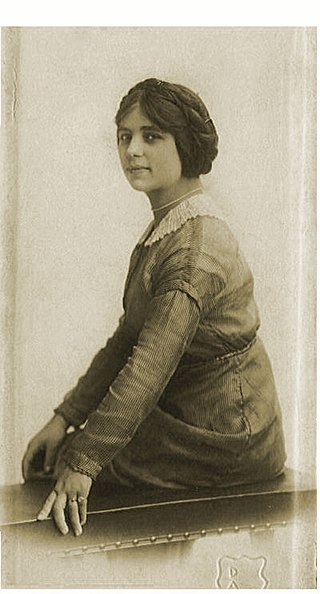
Fanya Anisimovna Baron was a Lithuanian anarchist revolutionary. She spent her early life participating in the Chicago workers' movement, but following the Russian Revolution in 1917, she moved to Ukraine and participated in the Makhnovist movement. For her anarchist activities, she was arrested and executed by the Cheka.
In the United States, anarchism began in the mid-19th century and started to grow in influence as it entered the American labor movements, growing an anarcho-communist current as well as gaining notoriety for violent propaganda of the deed and campaigning for diverse social reforms in the early 20th century. By around the start of the 20th century, the heyday of individualist anarchism had passed and anarcho-communism and other social anarchist currents emerged as the dominant anarchist tendency.
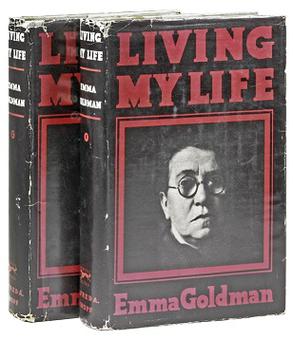
Living My Life is the autobiography of Lithuanian-born anarchist Emma Goldman, who became internationally renowned as an activist based in the United States. It was published in two volumes in 1931 and 1934. Goldman wrote it while living in Saint-Tropez, France, following her disillusionment with the Bolshevik role in the Russian Revolution.
Trade unions in Argentina have traditionally played a strong role in the politics of the nation. The largest trade union association, the Confederación General del Trabajo has been a force since the 1930s, and approximately 40% of workers in the formal economy are unionized.

The Argentine Regional Workers' Federation, founded in 1901, was Argentina's first national labor confederation. It split into two wings in 1915, the larger of which merged into the Argentine Syndicates' Union (USA) in 1922, while the smaller slowly disappeared in the 1930s.

The Argentine anarchist movement was the strongest such movement in South America. It was strongest between 1890 and the start of a series of military governments in 1930. During this period, it was dominated by anarchist communists and anarcho-syndicalists. The movement's theories were a hybrid of European anarchist thought and local elements, just as it consisted demographically of both European immigrant workers and native Argentines.

Louise Berger was a Russian Latvian anarchist, a member of the Anarchist Red Cross, and editor of Emma Goldman's Mother Earth Bulletin in New York. Berger became well known outside anarchist circles in 1914 after a premature bomb explosion at her New York City apartment, which killed four persons and destroyed part of the building.

Olha Illivna Taratuta was a Ukrainian Jewish anarchist and a founder of the Anarchist Black Cross (ABC).

Virginia Bolten (1870–1960) was an Argentine journalist and anarchist feminist activist. An anarchist agitator from an early age, she became a leading figure among the working women of Rosario, organising for the Argentine Regional Workers' Federation (FORA) and leading the first women's strike in the country's history. After being recruited into the anarchist movement in Buenos Aires by the Italian anarchist Pietro Gori, she joined some of the country's first anarchist women's organisations and established one of the world's first anarchist feminist periodicals: La Voz de la Mujer.
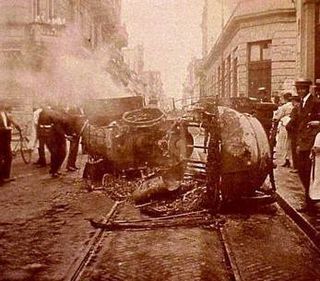
Tragic Week, also known as Bloody Week, was a series of riots and massacres that took place in Buenos Aires, Argentina, from January 7 to 14, 1919. The uprising was led by anarchists and communists and was eventually crushed by the Argentine Federal Police, the military, and the Argentine Patriotic League. Estimates of the death toll vary but are usually in the hundreds, mostly of workers at the hands of the government forces.
Feminism in Argentina is a set of movements aimed at defining, establishing, and defending equal political, economic, and social rights and equal opportunities for women in Argentina. Although some women have been considered precursors—among them Juana Manso and Juana Manuela Gorriti—feminism was introduced to the country as a result of the great European immigration wave that took place in the late 19th and early 20th century. The first feminists did not form a unified movement, but included anarchist and socialist activists, who incorporated women's issues into their revolutionary program, and prestigious freethinker women, who initially fought for access to higher education and, later, legal equality with men. The early 20th century was also full of women fighting for their freedom and rights in the workplace. Despite the efforts of the first-wave feminists, Argentine women did not acquire the right to vote until 1947, during Juan Perón's first government. His highly popular wife, Eva, championed women's suffrage and founded and ran the nation's first large-scale female political party, the Female Peronist Party. Although she refused to identify herself as a feminist, Eva Perón is valued for having redefined the role of women in politics.
Lucy Fox Robins Lang was an American activist involved with the American Federation of Labor (AFL) and the fight for amnesty for political prisoners. She is best known for her work with Emma Goldman and Samuel Gompers. Lang advocated for many political prisoners who had been charged under Wartime Emergency Laws. She was also a Zionist who helped raise money for settlements for Jewish refugees. Lang wrote about her life in an autobiography, Tomorrow is Beautiful (1948).
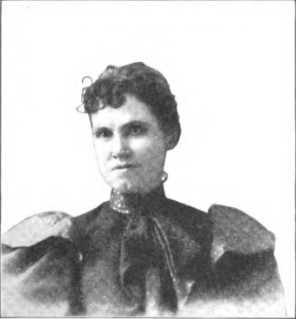
Lizzie Holmes was an American anarchist, writer, and organizer of Chicago's working women during the late 19th century in the United States. She was a key figure in Chicago's labor movement in the years just preceding the Haymarket affair, during which she worked with and played a leading role in a range of unions including the Knights of Labor and the International Working People's Association. Prior to becoming a labor organizer, she worked as a school teacher and music instructor in Ohio.
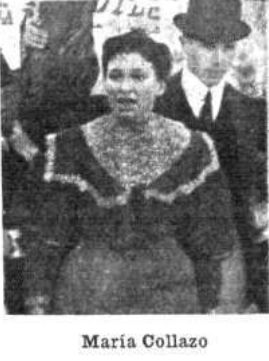
María Collazo was a Uruguayan educator and journalist. She was active in Buenos Aires and she was repatriated to Uruguay in 1907.
Anarchism in Peru emerged from the Peruvian trade union movement during the late 19th century and the first two decades of the 20th century.

The Tenants' Strike or Broom Strike of 1907 was a popular movement against the rise in rents in tenant houses in the city of Buenos Aires and other Argentine cities, popularly called conventillos. The strike began in August 1907, it lasted approximately 3 months and more than one hundred tenants participated in the movement, with thirty-two thousand workers on strike. It had a significant presence of anarchist and socialist activists.
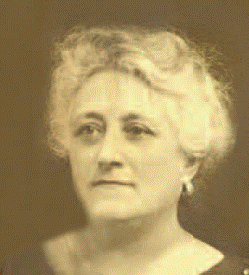
Sara Justo was an Argentine women's rights activist, educator and dentist. She was a leader in the women's rights movement of Argentina early in the 20th century, supporting women's suffrage and co-founding both the Women's Pro-Suffrage Committee and the Feminist Center of Argentina. She was one of the first four women dentists in Argentina, graduating from the University of Buenos Aires in 1901.
References
- ↑ Deutsch, Sandra McGee (1 March 2009). "Argentina: Jewish Women". Jewish Women's Archive. Retrieved 23 September 2016.
- ↑ "Dubovsky, Rosa (18?-1972) nee Chanovsky". libcom.org. Retrieved 23 September 2016.
- ↑ Bellucci, Mabel (1994). «Anarquismo y feminismo. El movimiento de mujeres anarquistas con sus logros y desafíos hacia principios de siglo». Todo es Historia. abril (321): 66-67.
- ↑ Mendes 2014, p. 234.
Bibliography
- Mendes, P. (2014-05-20). Jews and the Left: The Rise and Fall of a Political Alliance. Springer. ISBN 978-1-137-00830-5.